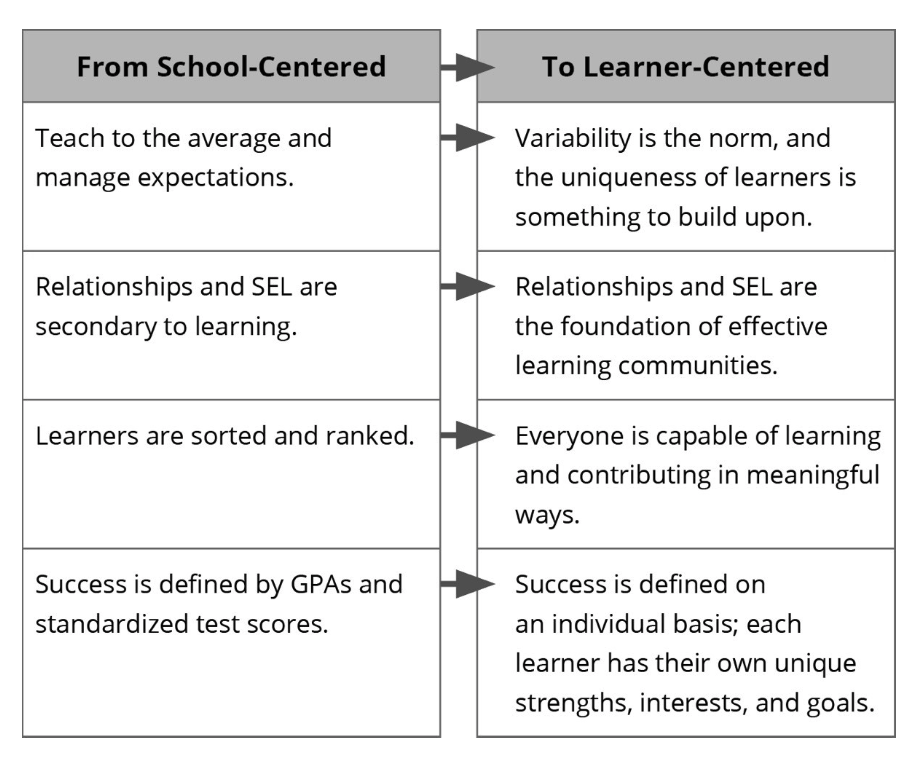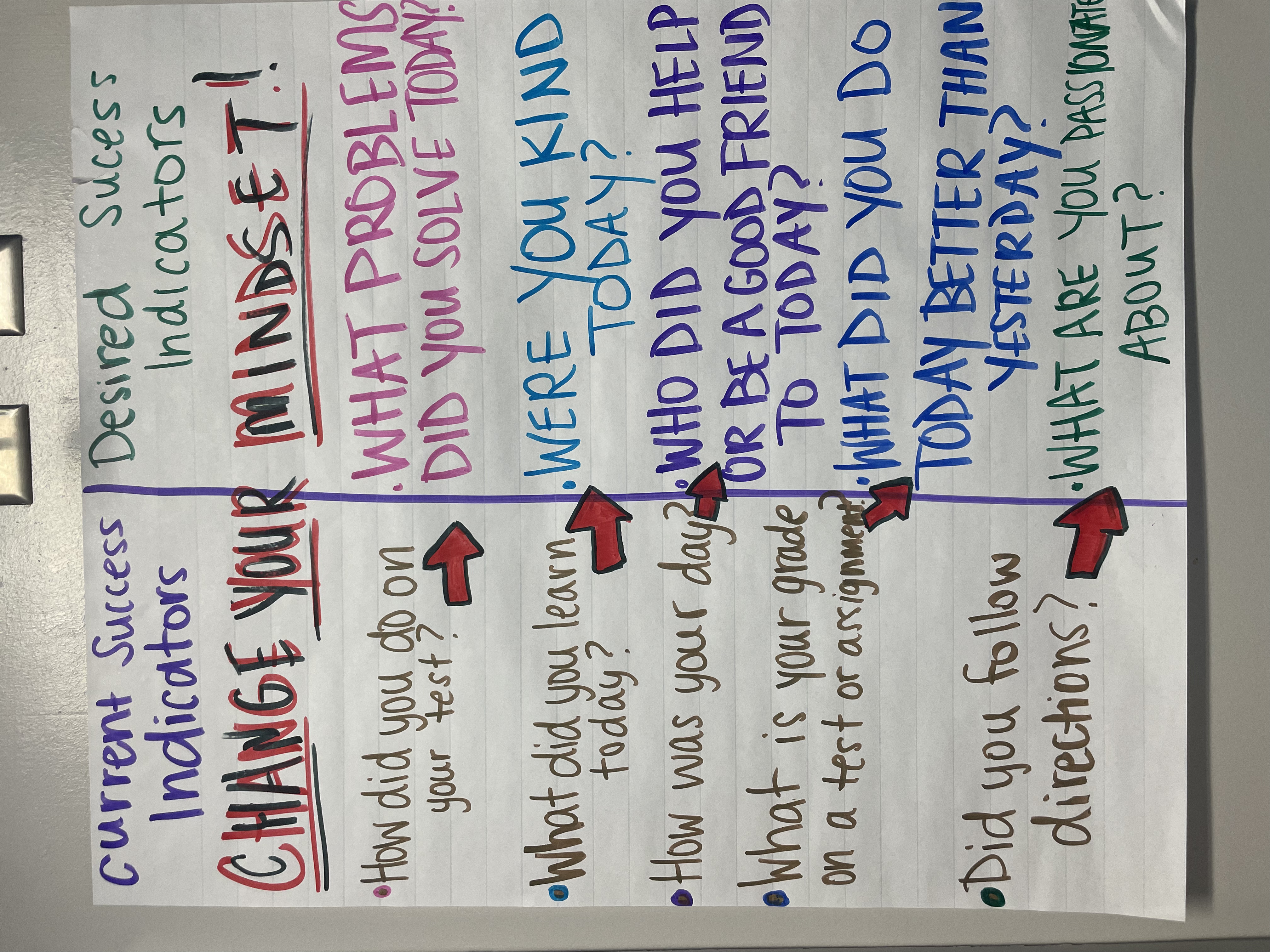I had the opportunity to connect with teachers this week who are reading Evolving Education. As we reviewed part 1 of the book, we reflected on these key shifts and which ones were the priority for them.

What does success mean to you?
I was chatting with a small group that was particularly focused on redefining success as teachers, school leaders, and parents. They highlighted this graphic and shared how they had been revising their questions in the classroom and how they were using it to have conversations about what success meant to their students and how it was reminding them of their own passion and goals as an educator. And then as I walked through classrooms the following day, I saw this poster. It made my day!

Another educator shared how she read these questions to her daughter, who is a senior in high school, and how it has started to shift their conversations from what is your grade to what are you proud of. She acknowledged that is hard and they stumble through but now they are having conversations rather than doing a daily status check! Day made again!
And then, as I spent the week with administrators and teacher leaders, we continued to reflect on what we value most, how we can celebrate and validate those skills and mindsets, and how we can continue to broaden our view of success for ourselves and those we support, teach and care for in our communities.
It gives me hope as I see this evolution happening in classrooms, schools, and districts that collectively we can redefine success metrics for ourselves and others that align with our beliefs and aspirations.
Here is an excerpt from Evolving Education on Redefining Success:
Many Americans don’t believe in this narrow view of success. In fact, according to the Success Index, a landmark study by Populace and Gallup, most Americans believe in a broader view of success focused on personal fulfillment, yet they perceive others to view success as status.
This means the majority of people believe that success is about finding meaning, purpose, and fulfillment in life, not simply achieving high test scores and receiving access to elite institutions. However, our country’s politics and policies don’t often mirror this view. When louder and often more powerful people tout a narrow view of success (and create policies based on this), they drown out the silent majority. Instead of making these aspirations of fulfillment the driver of what we do in education, the legacy of No Child Left Behind and similar policies and practices still permeate our curriculum, leadership, and view of success in many schools.
In their report “Imagining September,” Justin Reich and Jal Mehta describe the impact the No Child Left Behind policy had on many schools:
Schools made dramatic cuts to the curriculum by reducing time and attention to science, social studies, civics, the arts, physical education, recess, extracurricular activities, social-emotional curriculum, and many of the things that teachers and students love about school. These cuts make room for schools to focus on test preparation for English Language Arts tests (really just reading tests) and Mathematics tests (really just computation tests). . . The costs of such an approach to teacher and student morale and to a comprehensive education are now well known to anyone who has taught during the era of standards-based school reform.
In a learner-centered paradigm, how we educate young people in school can expand beyond a narrow standards-based focus—one that is optimized for developing expertise, meaning, and personal fulfillment and encourages development through authentic relationships and connections. While you might think this sounds great in theory, you might be thinking we need to make sure individuals can get a job and be financially stable, too.
Fulfillment and success don’t have to be mutually exclusive, and if young people spend more time developing expertise and agency, attending to their well-being, and navigating life with a sense of identity and belonging, they will be more equipped to chart a path that can provide a productive and fulfilling life and career path.



0 Comments